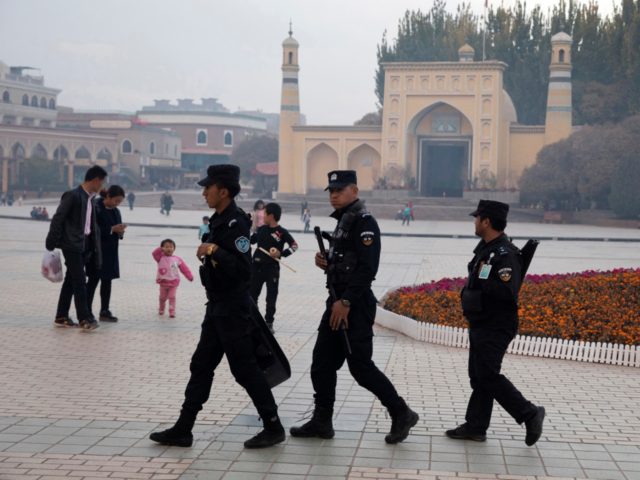Uighur families reportedly expressed anger and doubt this week over China’s allegation that it has liberated most Muslim minorities held in concentration camps in Xinjiang province.
The U.S. government and experts also contested the allegation.
Xinjiang, China’s largest province, is home to the largest concentration of predominantly Muslim Uighur minorities in the country. The U.S. and the U.N. have accused Beijing of imprisoning at least one million Muslim minorities, mostly Uighurs, in internment camps in Xinjiang.
“Currently, most people who have received training have already returned to society, returned home,” Alken Tuniaz, the pro-Beijing vice chairman of Uighur-majority Xinjiang, told reporters, Reuters reported Tuesday.
Shohrat Zakir, the chairman of Xinjiang, added that “more than 90%” of the Muslim detainees who “return to society … have work that they like and find suitable,” the Agence France-Presse (AFP) news agency noted on Thursday.
The Xinjiang officials comments angered many Uighurs.
“China’s claim that most inmates have been released from mass detention centers in Xinjiang region has been met with skepticism by the Uighur diaspora, which has launched a social media campaign challenging Beijing to prove it,” AFP reported.
Fatimah Abdulghafur, an Australia-based Uighur who believes her brother and father are in the camps, learned of China’s claim on social media, the Guardian pointed out.
“Everybody was responding very negatively, they were all commenting on Facebook, sending each other messages, saying ‘This isn’t true, if it’s true where is my person?’ My father is still missing, my friend is still missing,” she reportedly said.
“I thought: it’s a lie. I still think it’s a lie. It means that nine out of 10 people have been released, and from talking to people, my close friends, none of their family members have been released,” Arslan Mijit Hidayat, an Australian Uighur living in Turkey who lost contact with relatives in Xinjiang, added.
U.S. President Donald Trump’s administration also contested China’s claim.
In a statement, the U.S. said it was “unable to verify the vague claims,” the New York Times (NYT) reported Tuesday.
Beijing continued to show “extreme hostility to all religious faiths,” the U.S. reportedly added.
Citing the U.S. government and experts, NYT added, “They said that there was no evidence of mass releases from the camps across the Xinjiang region in China’s northwest, and that people who had nominally been freed often effectively remained in captivity, including being forced into labor programs instead.”
U.S. government officials have accused China of fording hundreds of thousands of Muslim minorities into camps designed to eradicate their religious and ethnic identity through torture, forced, labor, communist indoctrination, and other abuses.
China claims that the facilities, known as re-education and mind-transformation centers, provide vocational training aimed at combating religious extremism and terrorism.
Muslim countries, many of them considered human right violators themselves, have been mostly silent on China’s crackdown.
On Friday, the Hong Kong Free Press acknowledged:
A letter signed in early July by 22 Western countries, including the U.K., Australia, Canada, and France, raised serious concerns to U.N. officials about China’s incarceration of Uyghur people in so-called education camps in the country’s Xinjiang region. A few days later, a second letter emerged. Signed by 37 governments, including North Korea, Russia and Saudi Arabia, it effectively endorsed China’s human rights abuses in the region.
Some Muslim countries have even expressed support for China’s abuses against their fellow Islam adherents.

COMMENTS
Please let us know if you're having issues with commenting.